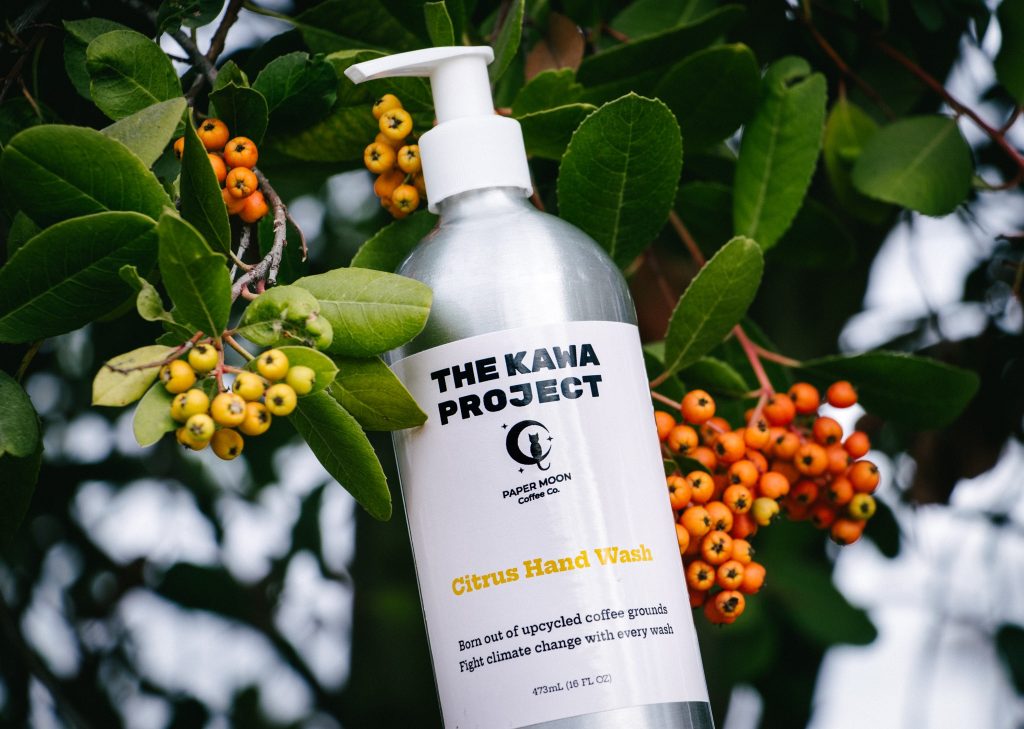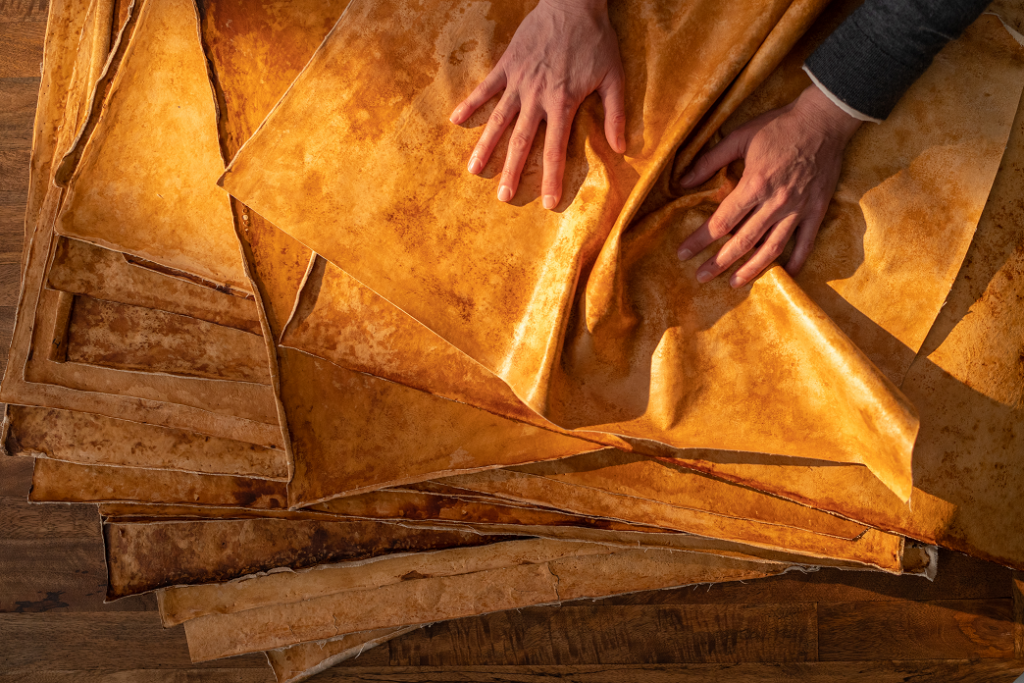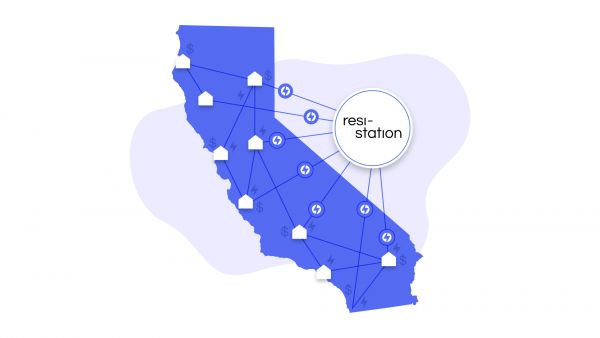To: The Impact Readers
Hello ☃️
Did you know that 2020 is almost over?
With only 23 days left it might be great to get that jump on your new year’s resolution? For us we’re looking to explore how we can build a community platform where we can aggregate useful resources and hear from all of you – our readers.
Think of it a directory of useful tools, investors, insights and of course our weekly newsletters. We’ll keep you posted on that.
In Your Inbox: Highlighting how coffee grounds can be used as oil or even hand sanitizer; How mycelium as leather can be a sustainable alternative to traditional leather; Breaking down what the $100M OhmConnect round means for the future of the electric grid

The Kawa Project is taking spent coffee grounds and upcycling them to create coffee oil and refined oil – both have multiple use cases, from soap and cleaners to candles. Following a previous piece on Kaffe Bueno’s business, Aaron Feigelman, the Founder of The Kawa Project, discusses more about coffee upcycling and what he is working on
How did you start The Kawa Project?
Starting back in high school, I was fascinated by chemistry and care about sustainability. I was further inspired by Revive Eco, as they were creating palm oil from coffee grounds. The two founders were baristas, and as an engineer, I wanted to figure this out myself.
At the time, I was interning at Tesla and decided to buy chemistry equipment for my garage so I could work on this during the weekends. After figuring out some pieces of the process, I went back to UCLA to finish up my last quarter. I took my research to professors and was able to find lab space on campus to continue my research. After graduation, this project turned into my full-time job.
What is the environmental impact of The Kawa Project?
30-40% of food is thrown away globally, creating 8% of total global greenhouse gas emissions annually. When food is wasted, the natural resources used to produce the food are wasted as well. Additionally, greenhouse gases case climate change. Instead of rotting in landfills and contributing to climate change, food waste can replace virgin materials used in products.
In America, roughly 3.5B lbs of coffee grounds are sent to the landfill every year. Even if coffee grounds are composted instead of being sent to landfill, the value is not reclaimed.
The Kawa Project aims to extract oil from the spent grounds. In (pre-pandemic) San Francisco alone, there were 400 coffee shops, each producing about 20 lbs of grounds per day, or about 3M lbs per year. I could take the 3M lbs of coffee grounds and extract over 400K lbs of oil and make 5M lbs of soap, shampoo, cleaning solution, candles, detergent, and more.
The catch with the extracted oil is that it can be a replacement for palm oil for particular use cases.
Palm oil is the most consumed vegetable oil in the world, and it is used in many goods and products, including food, cosmetics, and biofuels. The issue with palm oil is that it is high in demand and it can only be grown in equatorial regions. As a result, we are seeing deforestation in these regions to produce more of it.
The controversial thing is that palm oil is one of the main contributors to the GDP in these countries. The solution is a balancing act between using palm oil and its alternatives for products. However, even if we upcycled all coffee grounds into oil, we would not have enough to completely replace all of the palm oil use cases in the market.
What are the current trends in the sector? What does the future look like?
Europe is ahead of the game in terms of circular economy. The US will likely follow, just like we have with other sustainability trends. That said, spent coffee grounds will stop going to waste as we start to incentivize circular economy and accelerate innovation.
Sign up for The Impact and learn the perspectives behind the latest sustainability trends

MycoWorks, a startup creating materials at the intersection of art, nature and biotechnology using mycelium, recently raised a $45M Series B. Their mission is to benefit the world with new materials that offer superior performance, unprecedented design possibilities and new paradigms for sustainability with their reishi mycelium (rather than leather).
Why does this matter?
What’s next?
Thoughts
Textiles and fashion are a fundamental part of life and an important sector globally. In the last 15 years, clothing production has approximately doubled by a growing middle-class population. The key to material innovation in the sector is making it accessible and affordable to everyone.

Increase in peak energy demand doesn’t make it easy for the CAL-ISO to manage the routing of power. OhmConnect operates as the Advil for the grid when too much load is being requested by consumers grid wide. By compensating people for turning off their thermostat (HVAC tends to be the largest variable source in homes) OhmConnect has seen explosive growth in the California & now Texas regions working with utilities and the ISO directly they’ve found a growing niche focusing on being the gateway for utilities to control residential loads.
This $100M round led by Sidewalk Labs – the same firm that tried building a “smart city” in Toronto – is going to help OhmConnect subsidize and front the cost of deploying smart thermostats.
Why does this matter?
What’s next?
Thoughts
Demand response is the first step of many to electrify the entire grid while also focusing on maintaining the grid during this transitional phase the grid is going through. OhmConnect, being the first into this market, will likely see strong growth in the US as others begin to approach load management as a broader market in different ways.
Writers: Swarnav S Pujari, Ian Sumner, Daniel Kriozere
If you aren’t absolutely thrilled with The Impact, reply and let us know why. Or you can unsubscribe from all updates by clicking here.
Copyright © The Impact 2020. All Rights Reserved || 19 Morris Ave, Bldg 128, Brooklyn NY 11205
Develop your market map of up-and-coming climate startups and market opportunities by subscribing to our weekly newsletter for free.